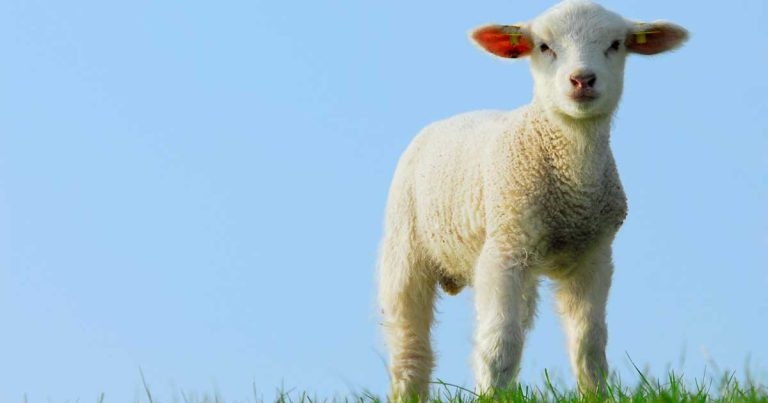21 Mar 2023
Susan Carr BVetMed, MRCVS discusses how, with wormer resistance on the rise, action is needed now to tackle the issue and provides advice to vets on supporting sheep farmers.

Image: © Eric Gevaert / Adobe Stock
Vets should be working closely with their sheep farmer clients to tackle a growing level of resistance to anthelmintic wormers.
Data shows 94% of farms are resistant to group 1 white wormers, 68% are resistant to group 2 yellow wormers and slightly more than half are resistant to the group 3 clear wormer active ingredient, ivermectin1.
Vets need to make themselves the first port of call for wormer advice, even if farmers do not purchase wormers directly from them.
The author believes worming may not always be a priority area for vets; however, Defra’s Animal Health and Welfare Pathway will create more opportunities for them to help sheep farmers tackle anthelmintic resistance.
The pathway will provide funding for annual vet visits on English farms, and one of its key focus areas for the sheep sector is addressing parasites and wormer efficacy.
The author believes the pathway is going to be a good way to open up these discussions around wormer resistance with farmers.
Farmers are always much keener to engage with vets when funding opportunities are available.
Worm control, and appropriate wormer use, should be a key part of any flock health planning with farmers. When the author carries out flock health plans, she likes to go through the calendar year with the farmer. The author asks what they do in terms of worming for both ewes and lambs, and what products they use and when. For sheep, worms are one of the main things talked about, because after feet, it is usually the next biggest problem.
A key challenge for vets was breaking down the barriers to change with wormer use, as many farmers treat sheep with the same product at the same time of year, every year, because that is what they have always done.
1. Devise a worm control plan as part of annual flock health planning.
2. Carry out faecal egg counts to ascertain worm burdens and to test the efficacy of any wormers used.
3. Encourage the use of the new group 4 wormer as a quarantine drench and as a one-off treatment for all lambs in the latter part of the grazing season.
A lot of this is down to a lack of understanding, and vets need to work with farmers to change attitudes towards wormers. When vets talk to them about wormer resistance, or not using a certain wormer product, the author thinks they can sometimes feel we are just taking things away and don’t see the bigger picture. It can be similar to discussions about reducing antibiotic use.
Vet practices should be encouraging, and helping, their sheep farmer clients to carry out faecal egg counts (FECs) as part of their worm control plans.
Severn Edge Veterinary Group, where the author is based, really pushes its farmers to bring in sheep faeces samples and to base their worming strategies on FECs.
Farmers should be encouraged to carry out FEC tests every four weeks throughout the summer. However, as the climate changes and winters become milder, it is likely FEC testing will be required beyond the summer months.
FECs are not only useful for assessing if, and when, sheep need to be wormed, they are also a useful tool for assessing whether wormer resistance is present on a farm. Wormer resistance is classed as anything with less than a 90% worm kill rate, but of course, a 70% to 80% kill rate probably still makes the lambs look a little better, so farmers assume the wormer has worked; however, production losses associated with the remaining burden will still occur.
Encouraging sheep farmers to test wormer efficacy was especially important because a survey found only 41% of sheep farmers have tested for wormer resistance, and 46% do not check wormer efficacy post-treatment2.
Sheep farmers should be encouraged to incorporate the new groups – 4-AD (orange) and/or 5-SI (purple) wormers – into their worm control plans.
This will help slow down resistance to the older groups – 1-BZ (white), 2-LV (yellow) and 3-ML (clear) wormer actives.
An open letter to the sheep industry last summer – supported by several organisations including the Sheep Veterinary Society and the Sustainable Control of Parasites in Sheep (SCOPS) group – urged farmers to integrate the new group 4 and 5 wormers into their worm control plans.
The letter said although studies show anthelmintic resistance is present on 98% of farms, 85% of farmers still believe the wormers they use on their own farms are working as well as they always have1.
Farmers should be encouraged to use the new wormers on two occasions, in line with the SCOPS guidelines. Firstly, it should be given as part of the quarantine treatment for all incoming sheep to prevent bringing resistant worms on to farm, and secondly, as a one-off treatment for all lambs in the latter part of the grazing season.
At the moment, the author’s practice only recommends using the group 4 and 5 wormers for quarantining and the break-dose, with the only other time being when a farmer has carried out FECs and her team knows resistance issues exist with the other wormers.
The newer wormers must not be left on the shelf for when others do not work. By that point it will be too late, as wormer resistance cannot be reversed.